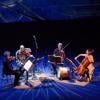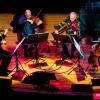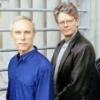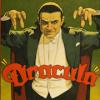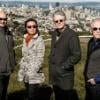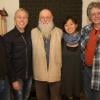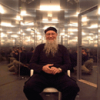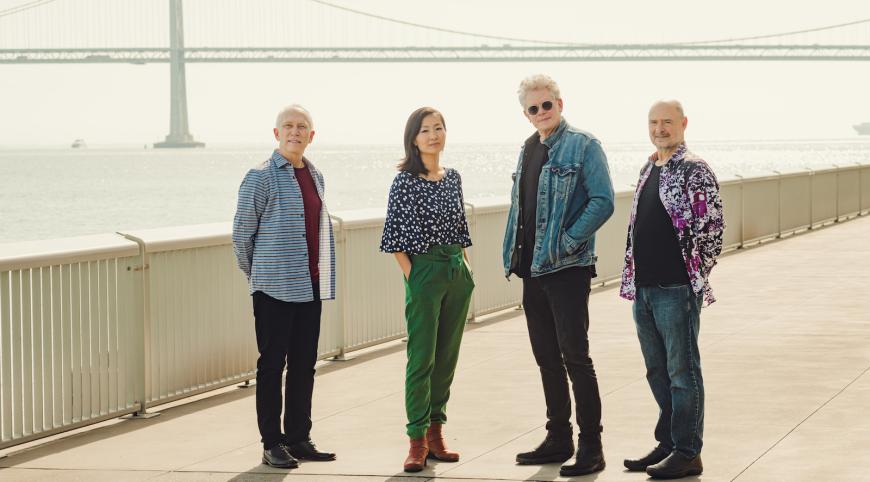
The Kronos Festival at SFJAZZ April 7–9 will showcase the breadth of their work with a concert piece about the Mỹ Lai massacre, a new handclapping song to honor their manager, the first recording of Chinese music in America from San Francisco’s Chinatown in 1902, Terry Riley’s Cadenza on the Night Plain (which one critic called “the archetypal Kronos piece”), and a collection of Steven Spielberg film scores, arranged by Jacob Garchik, this year’s artist-in-residence.
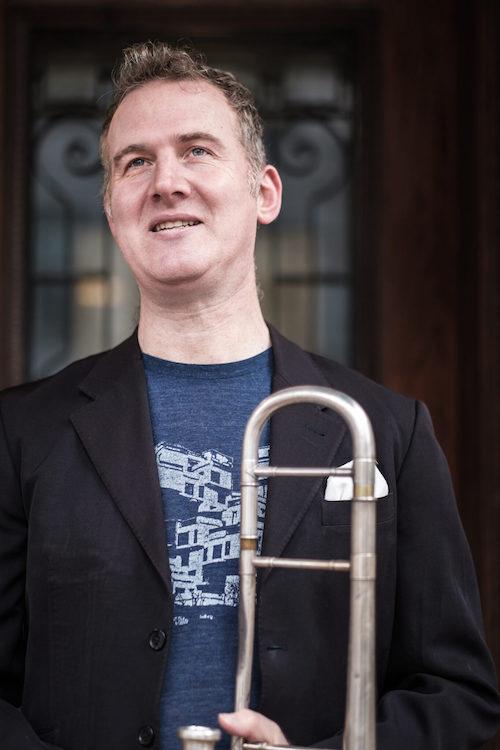
Seventeen years ago, violinist David Harrington was at Prospect Park with Kronos Quartet, the group he founded in 1973, playing Philip Glass’s Dracula. Harrington started talking to someone from Slavic Soul Party, who told him he should get in touch with Garchik. Harrington realized he knew that name — the musician had gone to school with his kids in San Francisco.
“We have a class photo of him hanging in our house from when he was 7 years old,” Harrington said. “He looks just the same all these years later.”
These kind of coincidences and happy accidents seem to happen all the time to Harrington. I guess if you’ve played thousands of concerts, made more than 70 albums, and commissioned around 1,000 works, you’ll make a lot of connections.
When Harrington did get in touch with Garchik, he was thinking about cantorial music. This came out of a rabbi singing at a memorial for the husband of his wife’s best friend.
“I was sitting in the front row, and it was like it was going right into me,” Harrington said. “I realized I want every member of Kronos to become like a rabbi.”
In another serendipitous moment, when he called Garchik, Harrington learned he’d been working on cantorial songs. He and Garchik chose four of those pieces from four different countries to perform. Since then, Kronos has worked closely with him, with Garchik notating works for composers who don’t read music and writing several pieces for them, like the one for Pete Seeger, Storyteller, which includes archival recordings of Seeger, and will be performed at this year’s festival.
“Jacob’s vocabulary is so vast,” Harrington said. “And he’s a great trombone player. After all the work he’s done behind the scenes for us, he deserves to be highlighted in his hometown.”

In the first Kronos Festival since 2019, there’s a lot of honoring to do. It will open with singer Hawa Kassé Mady Diabaté’s Janety, a Malian handclapping song for Kronos’s manager Janet Cowperthwaite (a “y” at the end of the name is a term of endearment in Mali, Harrington says), who has been with the group for 40 years.
Next up is Gubadia as an appreciation for the board of directors and their support.
“We’re celebrating our community,” Harrington said. “The board of directors helped us get through two years of COVID. They really stepped up to the plate. We asked Adeliia (Adele) Faizullina to create something in honor of the board, and it’s this exquisite piece. I was looking at the program before you called, and I just had a big smile on my face looking at all these people.”
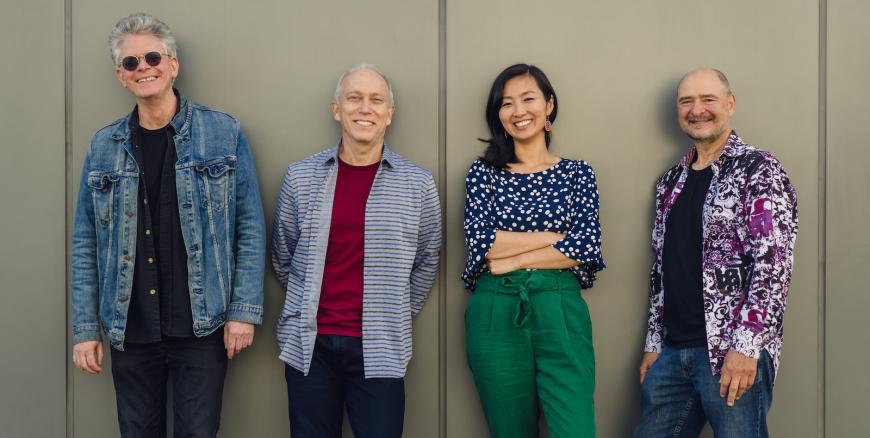
What’s the inspiration to form a string quartet that keeps doing new and experimental work For almost 50 years? Harrington says it wasn’t a conscious decision.
“The reason I’m talking to you now is because when I was 12 years old, I heard Beethoven’s Opus 127 [String Quartet No. 12 in Eb Major] played by the Budapest Quartet on my family’s record player, and I just had to play that. It wasn’t a choice — I had to make that sound,” he said. “The reason I started Kronos in 1973 is I heard Black Angels on the radio, and I thought I have to do this — I found my sound. I got a score, and I got a group together, and I found out who George Crumb was.
What I want to do is make moments like that for other people.” To create that sort of discovery, the quartet is constantly learning and finding new people to work with — as well as working with the same musicians for years. For example, Kronos has been playing with the world’s premiere pipa player, Wu Man, since 1992, and every time he’s with her, he learns something, Harrington says. At this year’s festival, Harrington and Wu Man will present a work with four generations of musicians — Harrington is the top generation, then Wu Man, then Brian Foo (a data visualization artist), and then Anouk Yeh, a teenage poet and organizer from San Jose.
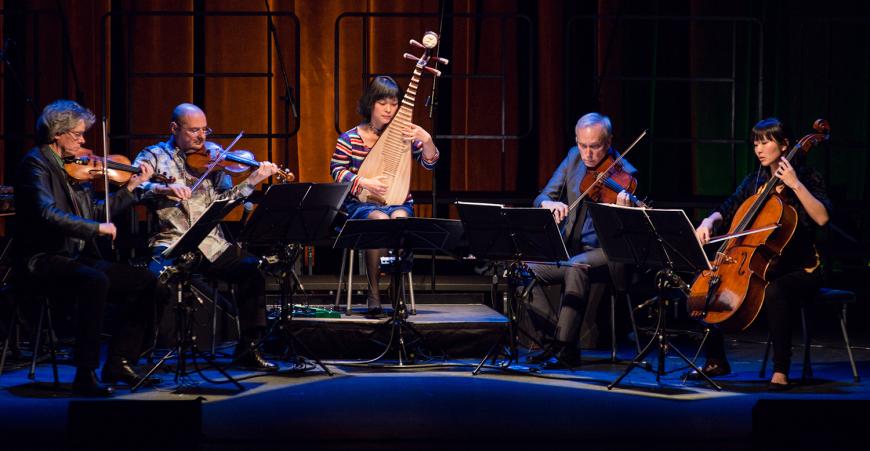
“She’s written a masterpiece, called “American Longing,” Harrington said about Yeh. “She read it to me over Zoom last night. Brian does this thing, Citizen DJ, and if you want to have some fun, you can check that out. And Brian has found the first Chinese music recorded in America in 1902 in Chinatown here. So that’s a glimpse into what will become an evening-length work. It’s five or six minutes now, and eventually it will be 50 or 60 minutes.”
The festival will also include compositions commissioned as part of Kronos’s Fifty for the Future: The Kronos Learning Repertoire project. That started because it was difficult for other musicians to find scores of Kronos’s music, Harrington says. So they worked with people at Carnegie Hall to publish them and provide them for free.
He could go through every piece on the program and explain why it’s there, Harrington says. He adds that he never wants just one adventure with musicians he likes to work with — he wants a whole body of adventures.
Like with Riley, a close collaborator. They haven’t played Cadenza on the Night Plain in years, Harrington said, and they were starting to miss it.
“It’s such a fabulous piece,” he said. “It’s so generous and expansive and full. Every item on this program, I had a similar experience when I first encountered the music. That’s my compass. When something seems like it needs to become part of my interior sonic collection, that’s what I listen for.”
More details at the Kronos Festival web page.


